

Safety in the Shop: Power Tools(1970)
The film emphasizes the importance of safety when using power tools in a workshop. It outlines key safety practices, such as using guards, securing materials, and wearing protective gear like safety glasses. The film also covers specific tool usage tips, including the correct handling of cutting machines, drills, grinders, and lathes, stressing that safety precautions should never be neglected. Proper maintenance and awareness of tool settings are crucial to prevent accidents.
Movie: Safety in the Shop: Power Tools
Video Trailer Safety in the Shop: Power Tools
Similar Movies
 7.1
7.1Youth (Spring)(zh)
This film was shot between 2014 and 2019 in the town of Zhili, a district of Huzhou City in Zhejiang province, China. Zhili is home to over 18,000 privately-run workshops producing children's clothes, mostly for the domestic market, but some also for export. The workshops employ around 300,000 migrant workers, chiefly from the rural provinces of Yunnan, Guizhou, Anhui, Jiangxi, Henan and Jiangsu.
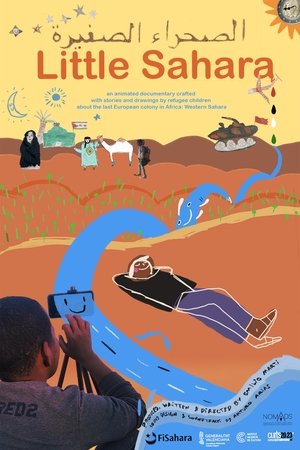 0.0
0.0Little Sahara(es)
Those who do not know the Sahara think there is only sand in the desert. But in the desert there are children who play and draw and make movies, and who would like to not have to think about the war. In the desert there's a European colony, an occupied country called Western Sahara, where there are thousands of Sahrawi refugees living a hard life in exile. "Little Sahara" tells their story, the story of a supportive, resilient people who try to thrive and grow in the Hamada, where everything has a hard time growing.
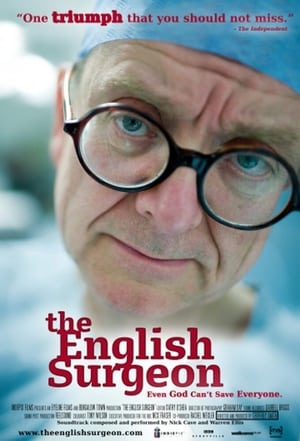 7.9
7.9The English Surgeon(en)
This documentary offers a glimpse into the life of an English neurosurgeon (Henry Marsh) situated in Ukraine as we are exposed to the overwhelming dilemmas he has to face and the burden he has to carry throughout his profession.
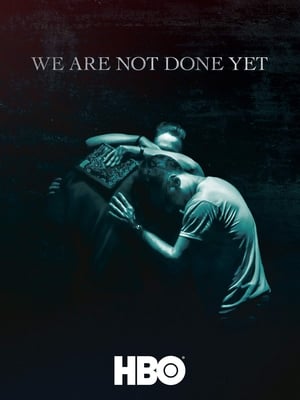 6.8
6.8We Are Not Done Yet(en)
Follows veterans and active-duty service members from varied backgrounds who come together to combat their traumas through the written word in a USO-sponsored arts workshop at Walter Reed National Military Hospital.
 7.1
7.1Blue Eyed(en)
In only 15 minutes with some 30 people Jane Elliott manages to build up a realistic microcosmos of society today with all its phenomena and feelings. As already known from the ill reputed Milgram experiment, even participants who knew the "rules" are unable to remain uninvolved. What starts as a game turns into cruel reality which causes some participants' emotions to erupt with unforeseen intensity
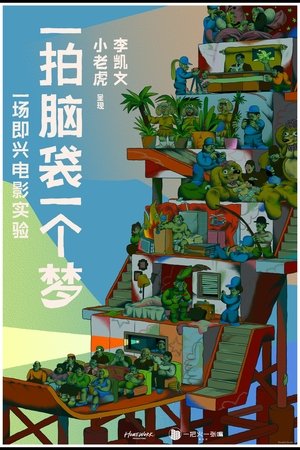 0.0
0.0A Pat On The Head Causes A Dream(zh)
A filmmaker and rapper duo revive Michel Gondry’s “Be Kind Rewind” protocols - a set of filmmaking “rules” with which groups of strangers can conceive, shoot, and screen a film in just two and a half hours. Against the grim backdrop of the stringent Shanghai lockdown, the event soon turns into a sanctuary for individuals to forge collective dreams.
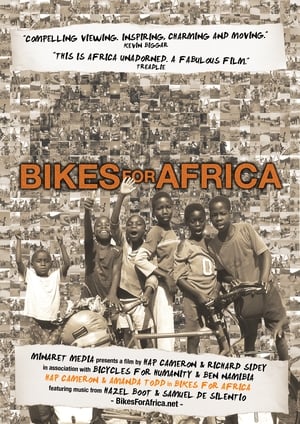 0.0
0.0Bikes for Africa(en)
Bikes for Africa is an entertaining, insightful and moving documentary following the life adventures of Hap Cameron and Mandy Todd, and their attempt to help implement a self sustainable bike workshop in rural Namibia with a container load secondhand donated bikes from Melbourne. The film investigates how a bicycle can fundamentally change the lives of rural Africans, and brings to focus the great works of two-wheeled charities Bicycles for Humanity and the Bicycling Empowerment Network Namibia.
Lifesaving and Water Safety: Special Equipment Rescues(en)
Discusses essential scuba diving safety and rescue techniques. It highlights the importance of following safety rules, such as not diving alone and knowing how to use rescue equipment effectively. It demonstrates various rescue methods, including the removal of a weight belt, inflating life vests, and using paddleboards and rescue tubes. The film emphasizes that proper training and equipment can significantly enhance a rescuer's ability to save lives in emergencies.
Lifesaving and Water Safety: Snorkeling Skills and Rescue Techniques(en)
The film provides a comprehensive guide on snorkeling skills and rescue techniques, emphasizing the importance of proper equipment such as masks, snorkels, and fins. It discusses how to choose the right mask for comfort and fit, the proper use of snorkels, and techniques for clearing water from both masks and snorkels. The film also covers essential skills for entering the water safely, practicing buddy systems during snorkeling, and techniques for locating and rescuing submerged victims. It highlights the need for training and emphasizes that while these skills are crucial for rescue, they do not replace the need for a full certified course in skin diving.
 0.0
0.0Comprehensive School(en)
The joys of 1960s modern education - as seen at a not-exactly-typical local comp.
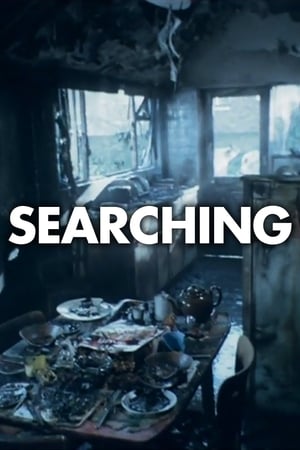 7.0
7.0Searching(en)
A haunting fire prevention film about keeping matches out of the hands of children.
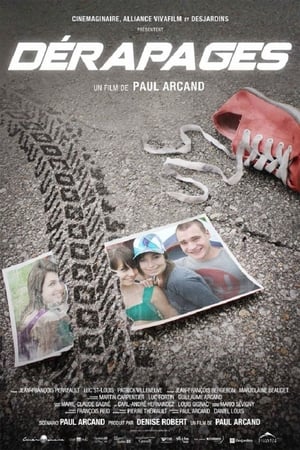 6.3
6.3Driving to the Edge(fr)
Between 2007 and 2011, 725 Quebecers aged 16 to 24 were killed in car accidents. Excessive speed and alcohol were involved in half of these deaths. To try to understand what is going on in these young drivers' heads when they get behind the wheel, host and documentary filmmaker Paul Arcand met with some of them. On one hand, he gives a voice to these young people who love driving fast. On the other hand, he provides a forum for two accident victims who were injured both physically and psychologically. Finally, the director meets the mother of little Bianca Leduc, who was killed by a drunk driver while she was in the care of her babysitter, and the parents of Michael Borduas, 23, who is severely disabled from an accident.
 0.0
0.0It Might Be You(en)
A doctor talks about the number of injuries and deaths resulting from automobile accidents.
Planning for Public Shelter Entry(en)
The film features a meeting led by Dave Taylor, the shelter manager, discussing the protocols and responsibilities for staff members involved in managing a public shelter. Key participants, including operations deputy Harvey Johnson and health leader Mrs. Carter, outline their roles in ensuring a smooth entry for occupants during an emergency. The meeting emphasizes the importance of organization, communication, and the distribution of supplies. Staff members are encouraged to familiarize themselves with each other's duties and prepare for potential scenarios, including managing newcomers and ensuring safety and sanitation within the shelter.
 0.0
0.0Simply Metric(en)
A guide to going metric from the Central Office of Information on behalf of the Metrication Board.
Your Chance to Live: Nuclear Disaster(en)
Portrays the challenges of creating a film about nuclear disaster amid public apathy. It captures behind-the-scenes moments as the crew discusses the gravity of nuclear threats, the importance of preparation, and the emotional impact of a nuclear attack. The narrative emphasizes the need for individuals to take responsibility for their safety and community in the event of an attack, blending factual information with a call to action.
Parks and People: Dope(en)
The transcript discusses the prevalent drug culture, particularly marijuana use, among youth in national parks. It highlights the perception that marijuana is less harmful than harder drugs and reflects on the challenges park rangers face in enforcing drug laws. While acknowledging the existence of drug trafficking, the narrative emphasizes that marijuana use is often seen as a minor issue compared to alcohol consumption or harder narcotics. The conversation also touches on the need for a more nuanced understanding of drug use, suggesting that current laws may be overly stringent and not reflective of societal attitudes.
Operations in Public Shelters(en)
A heavily dramatized Civil Defense film that demonstrates how a public fallout shelter is supposed to function after a nuclear attack. This scenario takes place in a fictional any town called "Middlebury". The film describes the situation in a public shelter in Middlebury following an attack on the United States.
The Gambler(en)
This late 1940s/early 1950s rather graphic color film about carelessness and safety operating heavy machinery is presented by Caterpillar.
 8.5
8.5The World of Budgerigars(en)
Sid James learns of the joys of owning a budgerigar.
